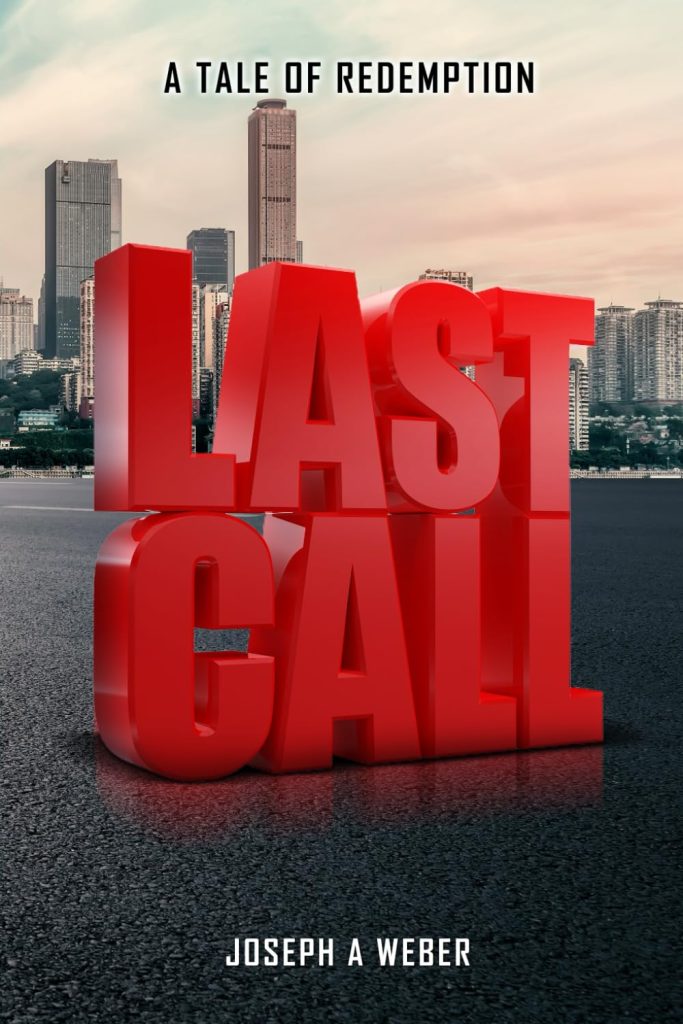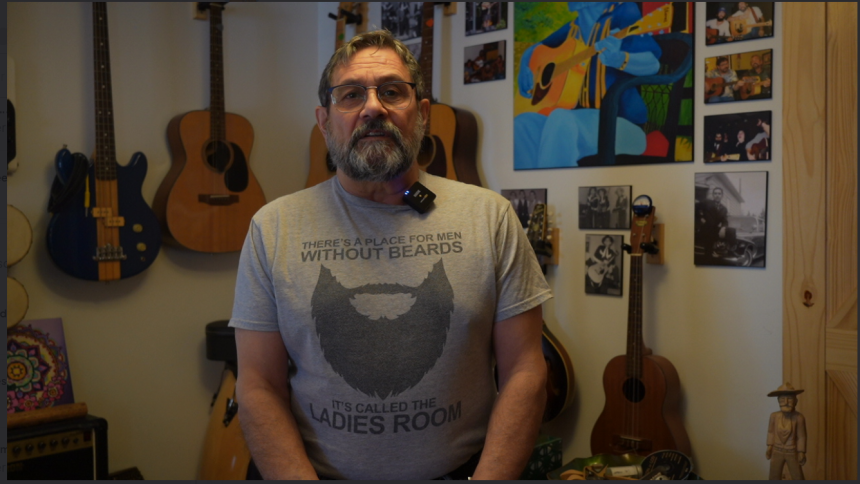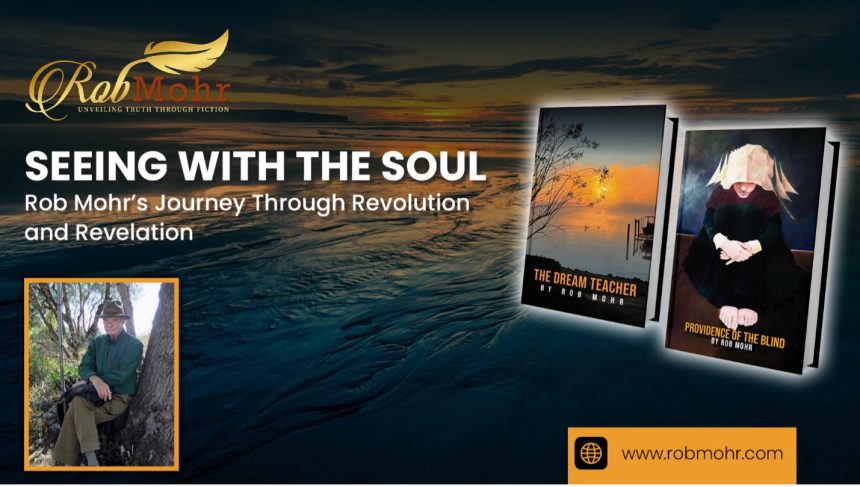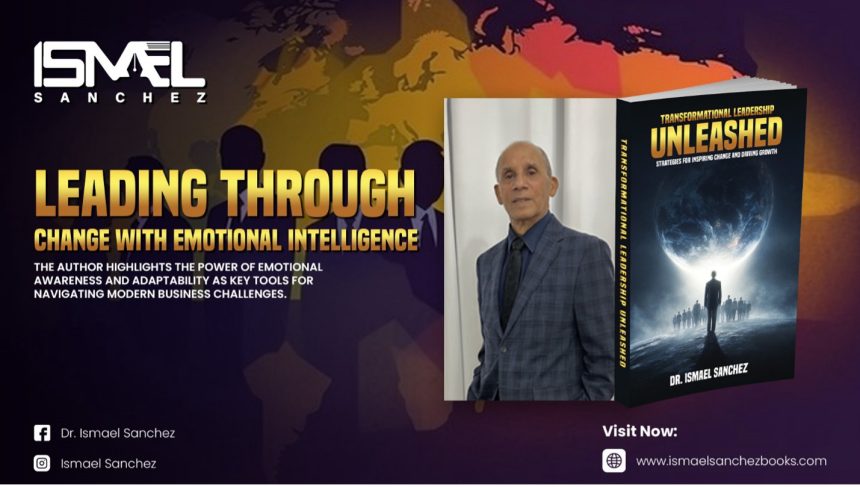Some stories enchant. Others jolt you awake.
Joseph Anthony Weber’s Last Call accomplishes both and beyond.
It is not simply an opus about addiction. It’s a poignant voyage through dismay, denial, and destruction—as well as the long, faltering path to salvation. It does not blink. It does not flinch. And it won’t let you off the hook.
Why? Because Last Call is a moving examination of addiction, recovery, and the redeeming power of faith in a profoundly personal and moving story. The book is both a frightening voyage into the depths of hopelessness and a moving example of spiritual growth and human resiliency.
Though the story is fiction it is a narrative based on reality penned by someone who has seen every dark corner of the world of addiction and recovery.
Meet Tommy Boy:
Last Call chronicles the turbulent life of Tommy Boy, the main character who is battling the harsh reality of addiction. Weber explores the chaotic and frequently tragic moments of Tommy’s struggle through evocative storytelling. The book tells a story of self-discovery and restoration by faith, community, and sheer resolve while skillfully capturing the rawness of dependency.
Tommy Boy isn’t simply unlucky; he’s on a downward spiral. Job gone. Family gone. Friends have faded away. A man consumed by hopelessness. What remains is an apparition he no longer recognizes in the mirror:
“This was the face of the damned and the doomed, the dying and the dead.” (Chapter: Powerless)
Our introduction to Tommy takes place in the remaining ruins of his life. He wakes up dressed in filthy clothes, chaos strewn about the floor of filthy rooms, uncertain if it is day or night.
Weber’s narrative provides an unfiltered and sincere examination of addiction’s most troubling times, complemented by a message of optimism and recovery. Last Call narrates the tale of Tommy Boy, a man facing his inner struggles following life’s unforgiving challenges, uncovering an unforeseen route to liberation, forgiveness, and belief.
In the first pages, we find him bent over a toilet, examining the content of his gut as though some sort of oracle:
He tried to read what looked like wet coffee grounds floating atop the greasy film in the bowl…
Tommy, still seeking some truth as to the cause of his downfall….. “But there was none; not yesterday, not today, not ever.” (Chapter: Powerless)
He’s not some movie cliché of an addict—no tortured genius, no charming disaster who’s waiting for a breakthrough. He is just an addict. Like so many others, lost, struggling, living out a slow and hideous death. Tommy Boy is no hero, no anti-hero. He is a genuine portrayal of the destruction of the addict and everyone who loves them. But also….a shining testimony to the power of faith and the miracle of a healing spirit.
“This tale goes beyond addiction; it’s about discovering hope when everything feels hopeless,” Weber expresses. “It’s a note for anyone looking for a new opportunity or working to assist someone in rediscovering theirs.”
As Joe reflects on his previous life and the significant events that led him to confront his own problems, the prologue instantly establishes a compelling tone. Through the chapters “Powerless,” “The Dream,” and “Acceptance,” readers are presented with an uncompromising view of the psychological and physical consequences of addiction.
Weber dedicates the book to people who are battling addiction and to those who are trying to overcome their own obstacles. Last Call has a strong spiritual foundation and draws inspiration from religious teachings, which are summed up in its recurrent theme: “If the Son sets you free, you shall be free indeed” (John 8:36).
The story also highlights the significant impacts of family, spiritual direction, and community support.
The Anchor of Faith
Faith is often the very bedrock upon which many families affected by addiction rebuild their lives. Addictions tend to render individuals feeling discarded, disjointed from their true values, and far removed from any purpose. Yet for countless individuals, faith has been the anchor that has kept them grounded through what seemed to them as very insurmountable challenges.
Faith — faith in God, a higher power, and the ability of the human spirit to rise against all odds — is, for the addict and the family of the addict, a wellspring of strength. On that road, so long and tiring, faith reminds them they are never alone. For many, recovery is not only about sobriety but also about spiritual restoration. Faith supplies the framework to understand suffering, the endurance to weather setbacks, and the strength to forgive — in others and oneself.
Prayer and the Scripture are a lifeline for families caught in addiction. They remind the family that no one stands outside redemption and that healing is difficult yet a part of the beautiful divine tapestry. One of the most powerful anchors for families still in the throes of addiction is the unwavering belief that no one is too far beyond redemption. That there is always an opportunity for redemption, and forgiveness will always be available.
In this recovery process, faith grants addict and their families the vision to trust in things they may not yet see. It offers a safe space to grieve, to let go of bitterness, and with great care, to slowly and surely recommence the work of restoring relationships. But it begins with one moment of desperation. To surrender – to stand before the truth that some things are beyond an individual’s control – has a significant role in recovery. Faith is not just passive belief; it is the conscious choice to trust that healing will come, even when one cannot see the way forward.
For families broken by addiction, accepting faith can be the first step toward true healing. It gives them hope that healing is possible and that behind their deepest pain is a divine plan for healing and restoration. In the words of scripture….
“What the enemy meant for harm, God can use for good.”
Faith turns despair into hope, pain into purpose, and recovery into redemption.
The Man Who Lived to Tell It: Joseph Anthony Weber
This account could not have been written by someone who had not experienced firsthand the pain of addiction and the obstacles that exist in the journey to faith and healing. Joseph Anthony Weber is not a detached observer of addiction; he is a guy who has been devoured by it and discovered God at its core.
Joseph Anthony Weber’s writing has a certain genuineness to it. Weber, a musician, chaplain, and pastor, draws from his personal journey of recovery from addiction. His insights on achieving sobriety and serenity following years of adversity give Last Call a profundity that comes only from personal experience. Now living in a small town in the country, he tries to spread his work’s values of happiness and purpose.

Why Last Call Stands Out
Weber’s story is a testament to optimism and the potential for change in addition to being a tale of addiction. Readers are given a sympathetic glimpse into the human condition through his candid writing and the incredibly flawed but likable characters.
In addition, the book raises complex issues of forgiveness, self-worth, and the concept of divine grace. Anyone who has experienced hardship or accompanied a loved one on their road to recovery will undoubtedly find resonance in it.
In a time where statistics on overdoses flash by like weather reports, Last Call is fighting to keep addiction from being a mere abstraction.
It says: This is how it feels,
It says: This is the price you pay.
It says: This is what could happen if you dare to face yourself.
“You don’t know me, and I doubt we will ever meet… but I know that he has helped me, and for that reason, I will tell the story.” (Prologue)
That is why this book has a stronger punch than most, for it is not merely a work of fiction.
It is a testimony. As Joseph quickly observes…“Above all, I thank my Lord and Master, Jesus Christ, who heard my cry and lifted me out of my despair.” (Acknowledgment)
This book is not solely intended for sale. It is meant to save lives. Proceeds from Last Call will be used in support of the operational budget of The Manie Daniels Center, a recovery home associated with Lovesoluble, a Charitable Organisation.
Why should you read Last Call?
- The parent who no longer knows how to help;
- The preacher who questions whether faith still works;
- The addict who believes there’s no way out of his misery;
- The heartbroken person who’s done with faking a smile.
Because sometimes, the last call is not a bad omen. It’s a divine calling. Every so often, it’s the last person left who hears it.
Contact Us
For more information, feel free to connect with us on Facebook, Instagram, and other social platforms. You can also visit our website at www.isfreedindeed.com, where the book is available for purchase. It’s also available on Amazon Kindle and other major platforms.
We’d love to hear from you!
Connect with Joseph Weber: Amazon Book Link | Facebook | Instagram






